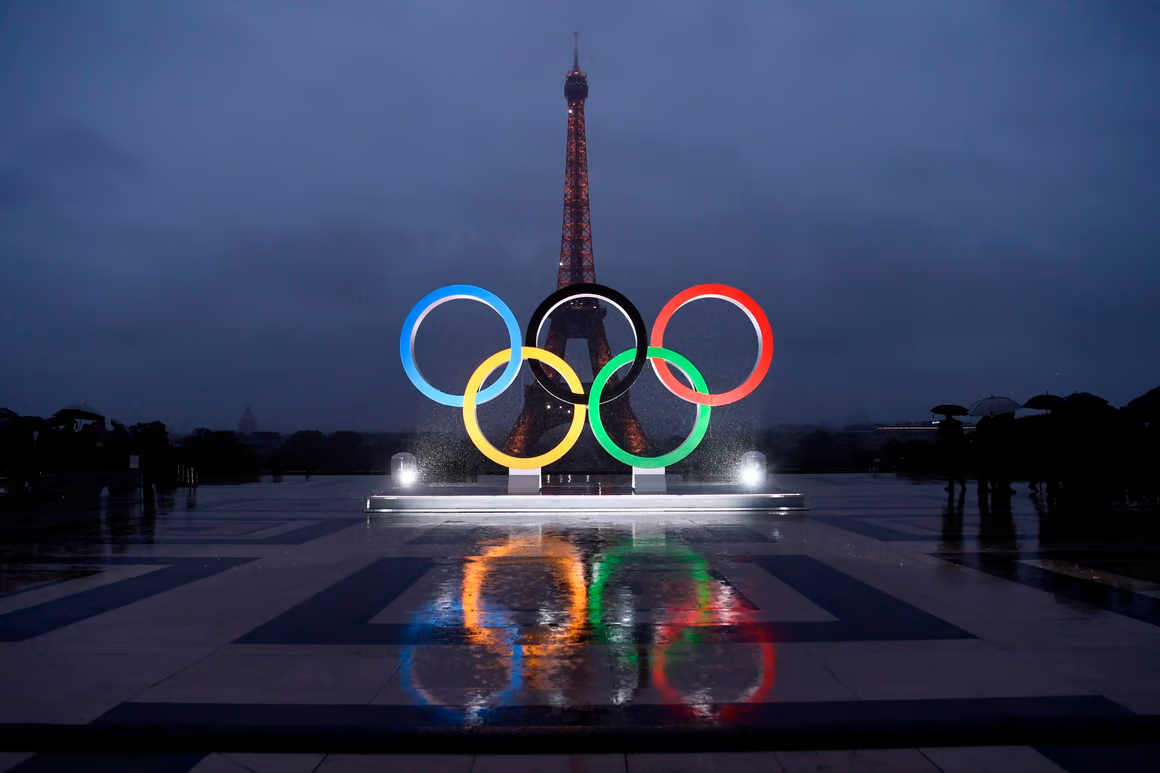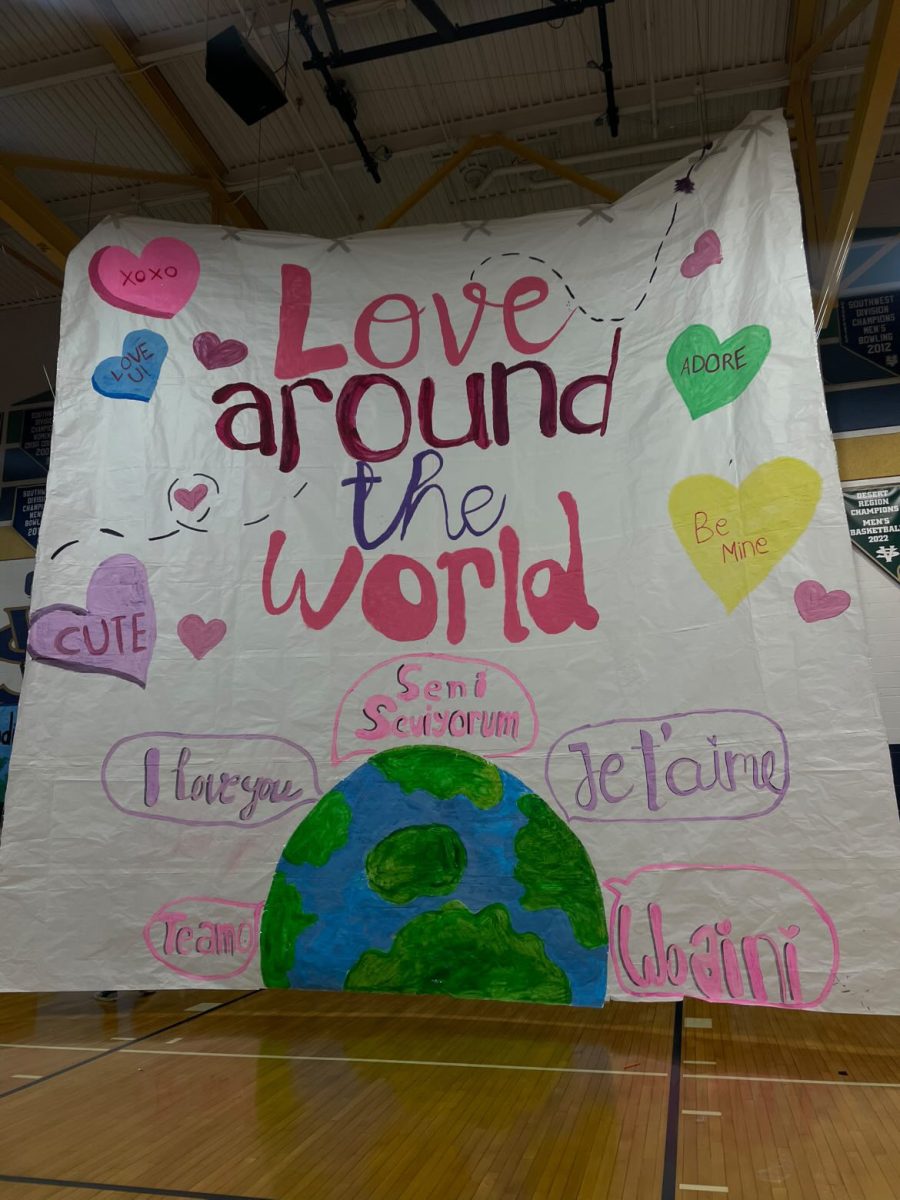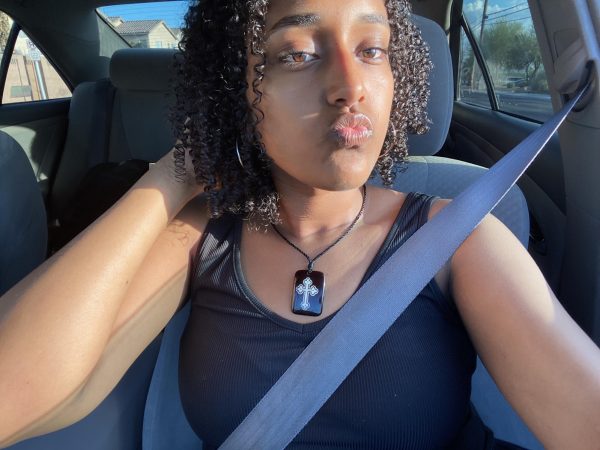The ongoing civil war within modern rap culture is nothing unexpected. Kendrick Lamar and Drake have pitted some of the biggest names in music against each other for their support. For instance, 21 Savage has sided with Drake, while Future supports Lamar. This cold war, simmering over the past decade, has finally boiled to the surface.
“I don’t think anybody expected this beef between the two,” said senior Tyrese Smiley. “Especially since the first diss was really hidden, and everyone was kinda shocked when Kendrick responded back.”
The First Shot: “First Person Shooter”
Smiley refers to the song “First Person Shooter” from Drake’s latest album “For All the Dogs.” The song, featuring J. Cole, debuted at number one on the US Billboard Hot 100, marking Drake’s thirteenth and Cole’s first number-one song. This achievement tied Drake with Michael Jackson for the most number-one singles by a male solo artist.
The lyrics that reignited the Kendrick-Drake feud were:
“Love when they argue the hardest MC
Is it K-Dot? Is it Aubrey? Or me?
We the big three like we started a league, but right now, I feel like Muhammad Ali”
In these lines, J. Cole refers to Kendrick Lamar as K-Dot, Lamar’s original stage name, and positions the three as the leading figures in modern rap. The primary trigger for Lamar’s retaliation was being placed third among the “big three” and Cole comparing himself to Muhammad Ali.
Lamar responded to this “sneak diss” on March 22, 2024, with his feature on the song “Like That” from Metro Boomin and Future’s collaborative album “We Don’t Trust You.” In the track, Lamar disassociated himself from Drake and Cole, asserting that he alone revolutionized the rap game.
Cole and Drake’s Reactions
Cole quickly fired back with the diss track “7 Minute Drill,” which he later apologized for and removed from streaming services, effectively removing himself from the feud. In contrast, Drake responded aggressively with the release of “Push Ups” and “Taylor Made Freestyle” in April. However, “Taylor Made Freestyle” was deleted after Tupac Shakur’s estate threatened legal action over AI-generated vocals resembling Shakur.
In response, Lamar released “Euphoria” on April 30, expressing his deep animosity toward Drake. He criticized Drake’s parenting, and soon after, released “6:16 in LA” on May 3. Drake countered with “Family Matters” later that day, accusing Lamar of domestic abuse and alleging that one of Lamar’s children was fathered by Dave Free. Less than an hour later, Lamar released “Meet the Grahams,” accusing Drake of sex trafficking, being a sexual predator, and fathering a secret child. Lamar followed up with “Not Like Us” the next evening, further accusing Drake of pedophilia and refuting Drake’s claims about Lamar’s family. On May 5, Drake responded with “The Heart Part 6,” denying Lamar’s accusations and asserting that Lamar received false information about the secret child.
Overall, nine tracks have been released during this feud—four from Drake and five from Lamar—each garnering significant social media attention. “‘Not Like Us’ is easily the best song that’s come from it because after that Kendrick easily won,” said senior Alijah Adem. “The quality of music hasn’t dropped, but I think they’re releasing frequently to keep up with what people want.” Adem admires both rappers but claims to have ‘no bias’ regarding the dispute.
Polarizing Ends of the Rap Spectrum
This feud is a rare mainstream moment in pop culture, as Lamar has always valued quality over quantity in his discography, taking years to release an album to maintain this mindset. In contrast, Drake’s mainstream success has often sparked jealousy and distaste from other celebrities and fans. Both artists have sacrificed their reputations in an effort to ensure the other’s downfall, supported by their respective factions. Drake is the most successful rapper of modern times and a prominent pop culture figure, while Kendrick is praised for his artistry, social commentary, and lyrical prowess.
The constant comparison between the two stems from their representation of polarizing ends of the rap spectrum. Drake experiments across various genres, appealing to a broad audience, while Kendrick creates music with lasting impact.
“They usually stay in their own worlds of rap,” said senior Amanuel Alemu. “Drake releases all types of music to appeal to a larger audience, and people like that. Kendrick makes music that adds lasting value to the genre.”
The Outcome and Drake’s Concession
Both rappers have faced praise and criticism during the feud, and fans of each have declared their favorite the winner. Despite the intense lyrical battles, it’s clear who came out on top. Drake remains a superstar, but he’ll need to handle the jokes and banter about losing for the rest of his career. Once again, rap music wins.
Drake ultimately conceded defeat by posting on his Instagram story about upcoming summer releases, saying, “Good Times, Summer Vibes up next.” This indicates he’s done with the hate tracks he’s released over the past two months. Fans now anticipate a new summer anthem from Drake, hoping it will be as iconic as his 2016 hit, “One Dance.”












